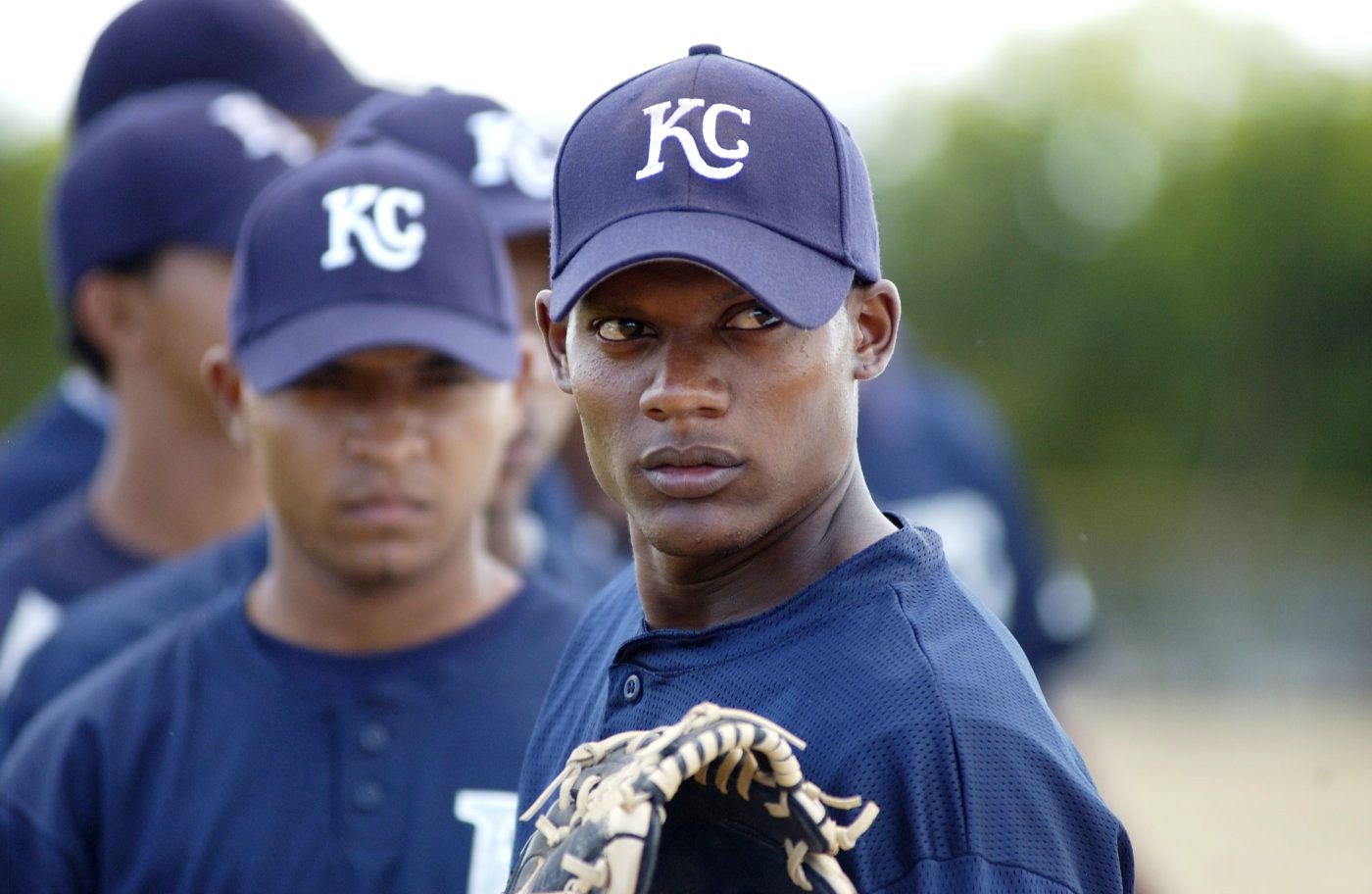By Chlotrudis Independent Film Society
Rating: 4.5 cats
Director: Anna Boden | Ryan Fleck
Starring: Algenis Perez Solo | Andre Holland | Ann Whitney | Ellary Potterfield | Jaime Tirelli | Rayniel Rufino

Country: united_states
Year: 2009
Running time: 120
IMDB: http://www.imdb.com/title/tt0990413/
Diane says: “Loved SUGAR. More kudos to that fab filmmaking duo, Boden-Fleck. SUGAR is beautifully filmed and edited. Every shot has an emotion underlying it. This baseball ignoramus was able to get the story completely. My only complaint: I thought it was going to end about ten times. 4 cats.”
Jason says: “It’s an oft-repeated joke that the Dominican Republic’s chief exports are sugar and professional baseball players. I’m not sure whether that was in the mind of filmmakers Anna Boden and Ryan Fleck when they named the title character of their engrossing new movie; I suspect they did. It’s the sort of movie that reveals more with closer examination, and while that sometimes happens because things come together naturally, it’s more often planned.
“Miguel ‘Sucre’ (‘Sugar’) Santos (Algenis Perez Soto) is a seventeen-year-old pitcher who signed with the Kansas City Knights a year or two earlier, and has been working hard at the team’s Dominican baseball academy ever since. He’s put on twenty pounds of muscle over the winter, and when a scout asks him to try a knuckle curve, he practices it obsessively until he masters it. That gets him an invitation to spring training, with the next stop the low minors in Iowa. For as much as everyone in the organization tells him that it’s the same game he’s played all his life, though, Iowa is a different world, where nobody speaks Spanish and even fellow rookies like Brad Johnson (Andre Holland) don’t quite understand how much is riding on Miguel’s shoulders.
“SUGAR starts out looking like a rags-to-riches movie, with the poor kid from the Dominican being overwhelmed by the promise of America, but that’s not the direction it heads. He’s still overwhelmed, of course, but it’s by a world that he can’t understand and seems utterly alien to him. It’s also about how disposable we treat athletes and other entertainers, and places like the Dominican Republic in general And, if that seems a little too impersonal or political, it’s also about something almost all of us must face – the moment when we first have to really compete, and how we respond.
“Not everybody has that moment, or it may come earlier than we can remember. It may not be about something at the center of our lives. But it’s certainly the engine that drives this movie’s story, and that makes it a story we can relate to, rather than something like a lecture about what these other people go through for our entertainment. When we first see Miguel, it’s apparent that he’s both the most naturally talented and hardest worker in the academy, but by the time he gets to single-A, everybody is just as talented, determined, and hard-working. How he reacts to that situation is what spins the movie off in the direction it winds up taking.
“That winds up being a bit uncomfortable at first – the transition point in the movie is so abrupt and unexplained that the audience may initially think that something else is going on, and the movie is taking a while to get back on track. I’m not sure whether that’s a positive or a negative; the filmmakers had done such a good job up until that point of presenting what Miguel is thinking and feeling without resorting to things like narration or sounding board characters (the latter of which would have ruined the feeling of isolation). There are lots of great moments like that – especially notable are a series of scenes in an Arizona diner where he struggles to order breakfast and a long tracking shot that emphasizes the sensory overload of a hotel on the road.
“And there’s Algenis Perez Soto, a first-time actor who nevertheless gives a very impressive performance. Its main note is alienation and confusion, but of a reserved sort. During the early scenes in the Dominican, we also get a clear picture of the combination of cocky self-confidence and relentless hard work that are the minimum of what it takes to succeed in something like professional sports. He’s surrounded by a variety of good but understated performances – Rayniel Rufino as the mentor on his way down, Andre Holland as the hyped American prospect who becomes Miguel’s friend, Ann Whitney and Richard Bull as his host family in Iowa (and Ellery Porterfield as their attractive granddaughter), and Michael Gaston as the manager of the single-A team.
“Boden and Fleck give Sugar the same matter-of-fact feel as their previous film, HALF NELSON. Much of it is shot in actual Dominican, spring training, and minor league facilities, although we see much more of the clubhouses than game action. They avoid coming straight out and saying what they want the audience to learn directly, but show enough to get their points across. They avoid obvious side-by-side comparisons; for instance, the scene where a bunch of kids in the Dominican are taught the English words for various baseball terms is separated from them being unable to order in the diner that we don’t consciously connect the two until later, when the true thrust of the film becomes clear.
“Indeed, one can say that SUGAR isn’t really a baseball film (though doesn’t that get said about every sports movie of any depth?), but rather a film about the exploitation of third-world countries; it just focuses on baseball because that will draw more people in than a movie about Miguel’s mother and sister in the garment factory. It is, fortunately, well-constructed enough to be both, and a coming-of-age movie besides. 5 cats
“Seen 10 April 2009 at Landmark Kendall Square (first-run, filmmakers in attendance)”
